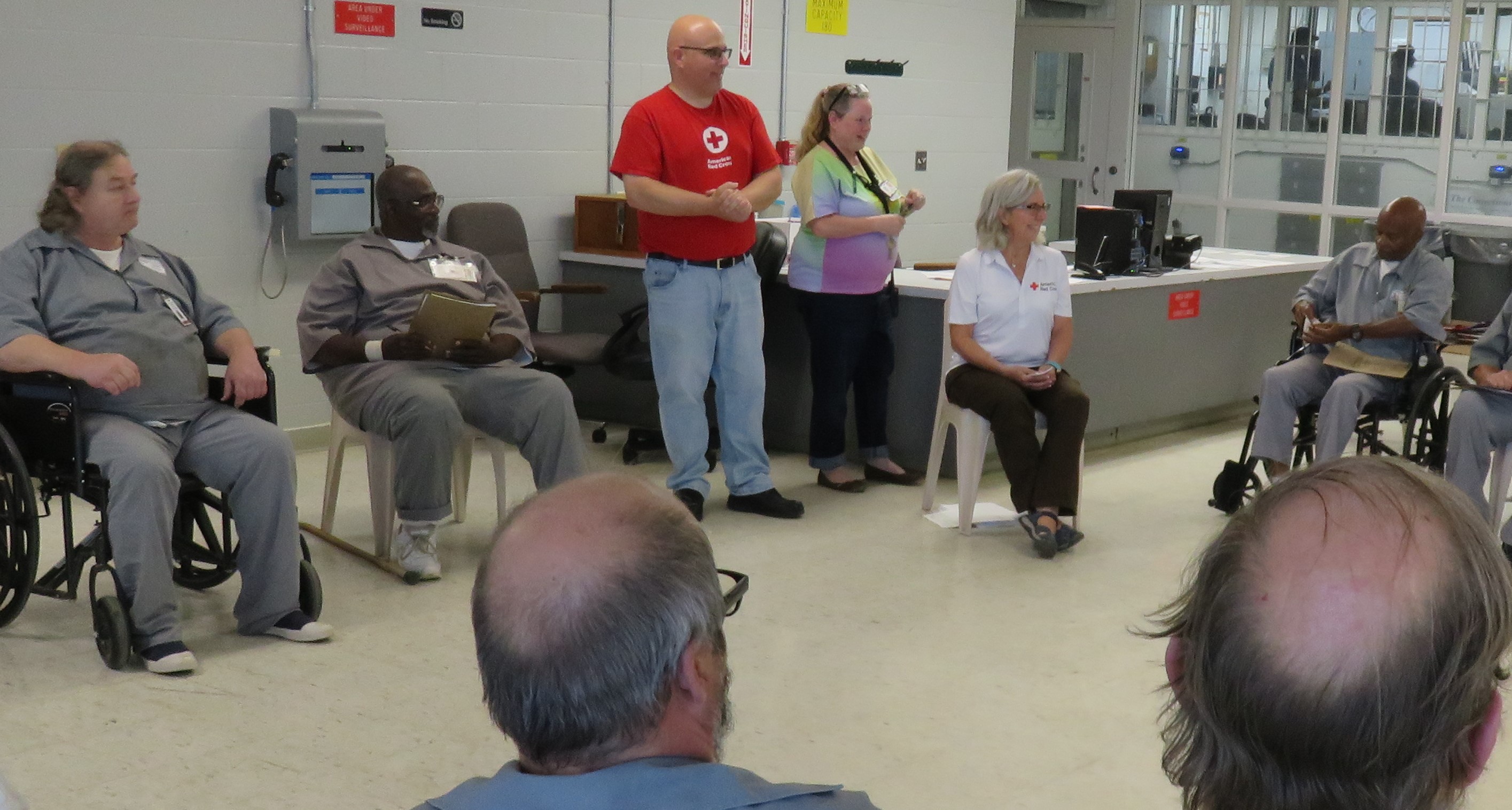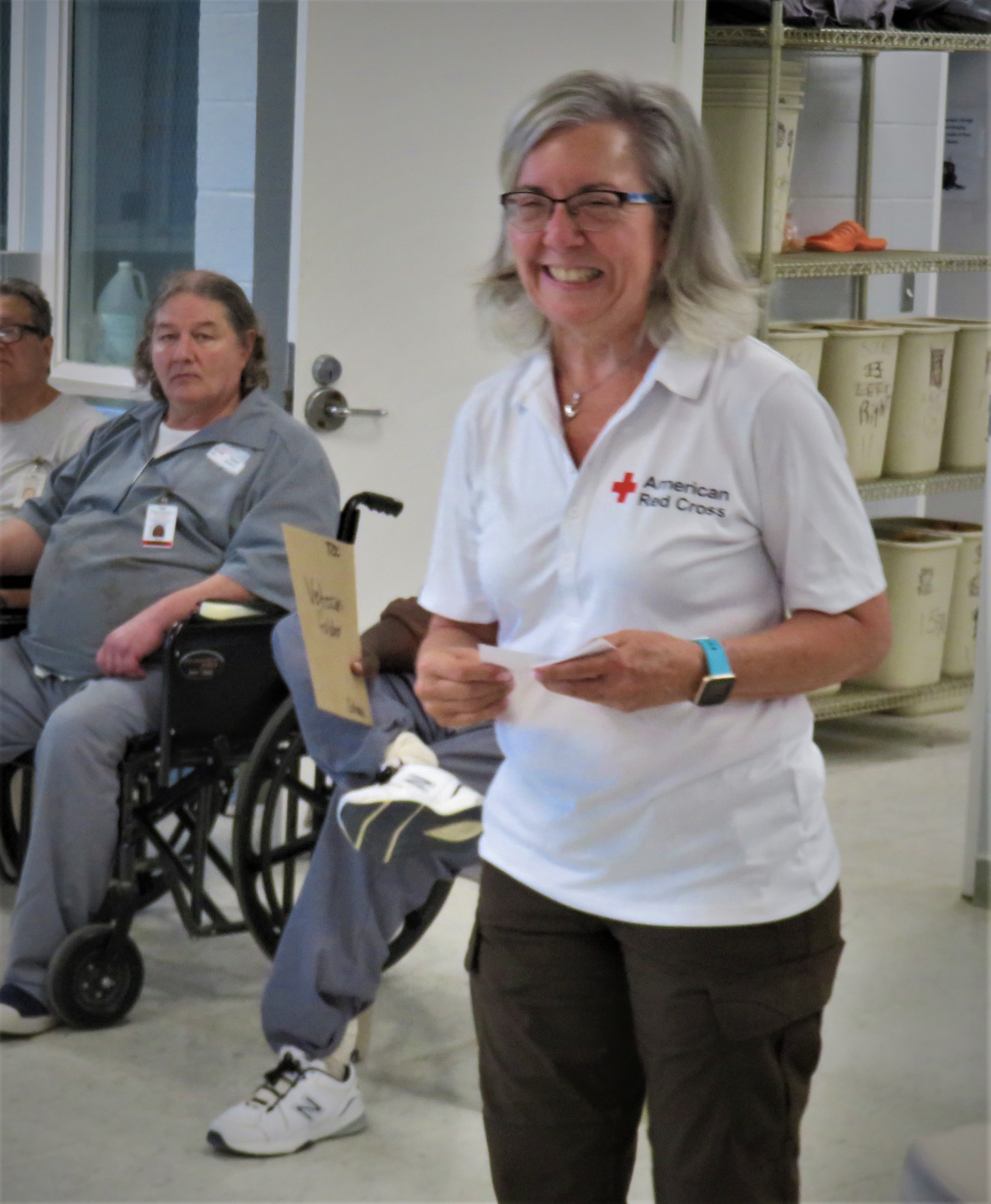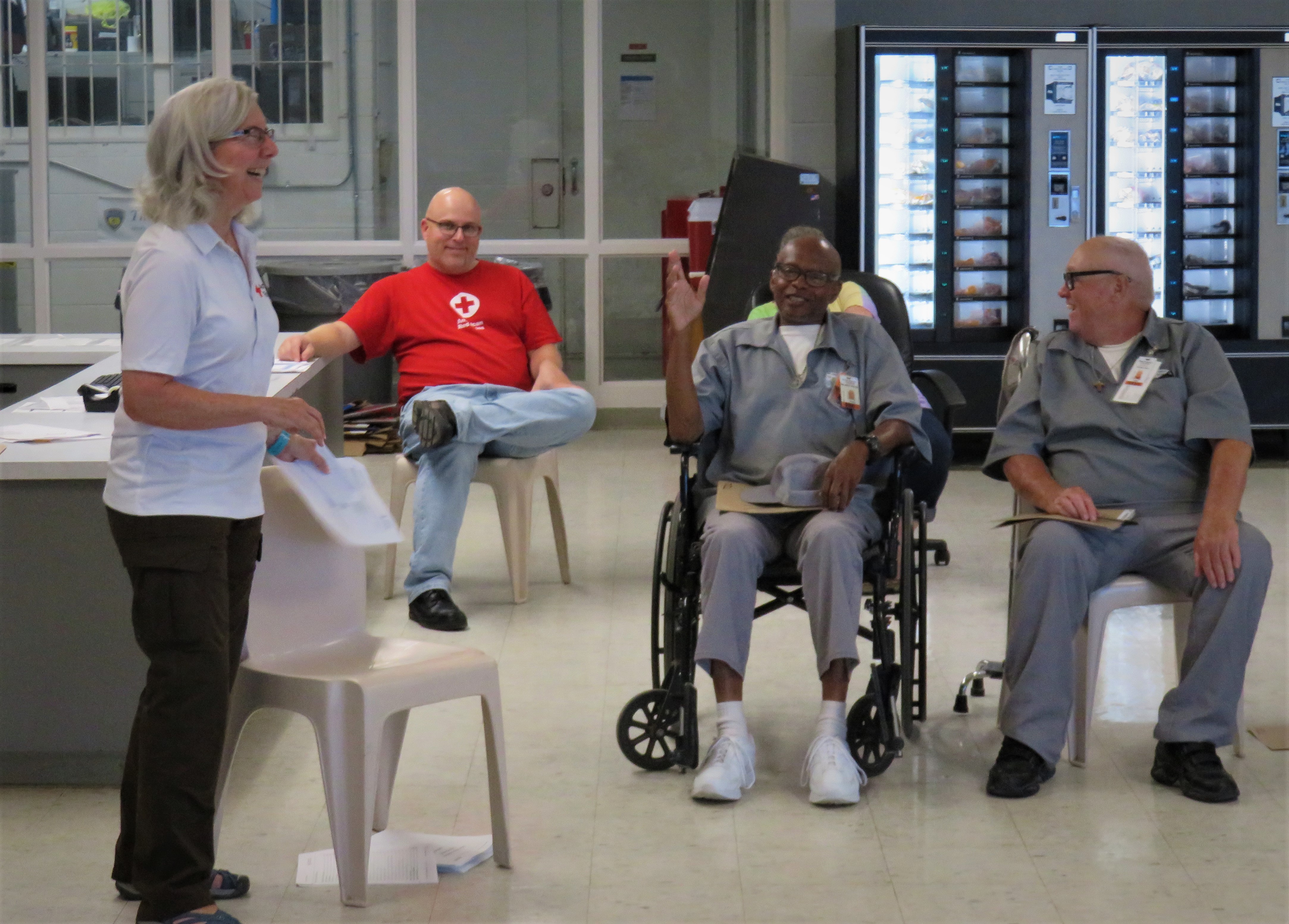


For years the American Red Cross Service to the Armed Forces has conducted Reconnection Workshops to help military members, veterans and their families navigate the many transitions they face. The workshops provide effective ways to work through challenges to improve well-being and to build skills through small group discussions. Recently the Red Cross began offering workshops to incarcerated veterans in the Missouri-Arkansas region.
Jason Ramlow, SAF regional program manager based in Kansas City, Missouri, said he and Sandy Vaughn, former SAF regional director, came up with the idea of taking the program to prisons and proposed it to the Missouri Department of Corrections.
“They were very open and cooperative to the Red Cross being there to help the veterans,” Jason said. “Potentially, it helps the veterans to deal with being incarcerated and it seems to have been impactful for the veterans. The fact they choose to come says a lot.”
In the spring of 2019, SAF started the workshops for veterans in Tipton Correctional Center, the Potosi Correctional Center, and the Algoa Correctional Center at Jefferson City. Jason, who has been with SAF for 22 years, said the workshops got off to a good start, but Covid shut them down in 2020. It wasn’t until September of 2021 that they resumed.
On a recent trip to the Tipton prison Jason was accompanied by Terry Johnston, a retired social worker from Lansing, Kansas, who is among some twenty workshop facilitators in the two-state region. Terry said she has no problem going into prisons and working with veterans who are inmates there.
“They are just another group of people who might benefit from what I can give. It doesn’t matter to me, as long as I can be there and can help,” she said.
Jason said the goal of the workshops is to enable people to connect better with their families and the world around them.
“We want them to be more comfortable with their surroundings and dealing with themselves and those they encounter,” he said. “The topics we cover are the same as for those coming back from deployments.”
Arriving at the Tipton facility, Jason and Terry undergo check-in procedures required of all visitors and are met by Gina Rains, case manager for the honor dorm where the veterans in the program are housed.
“We are so grateful for the Red Cross coming here and the inmates are really glad to see them,” Gina said. “During Covid, it was a real hardship because nobody could come and they really missed this.”
Around two dozen inmates enter the room for the workshop and sit in a large circle. When the day’s topic of anger management is announced, several participants smile because it’s something many have seen up close and personal.
The discussion begins and soon one inmate said, “When you are angry, the only person feeling it is you.”
“Yes, you’re the only one who can let it go, no one else,” Terry offered.
“Anger is a secondary emotion. Somebody belittles you, and you respond,” another inmate said.
“You guys have learned something,” Terry said with a smile.
The discussion continues, with inmates raising suggestions and ideas for dealing with anger. Terry listens, at times offering her thoughts and keeping the conversation flowing.
Soon it’s time to end the day’s session and for the inmates to return to their housing unit. But during their time together they were more than inmates. They once again were part of a military brotherhood.